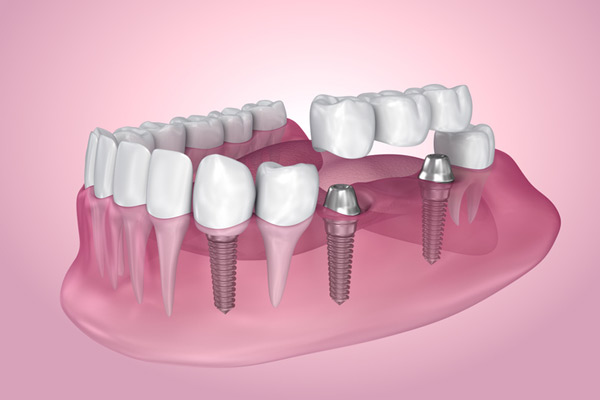Soft Tissue Management for Implants Soft tissue management is crucial to the success of dental implants. It contributes to the functions of the implant restoration, eating and speaking, as well as appearance. Although the implant is anchored to bone, we must integrate the surrounding soft tissues to ensure that the implant is comfortable and has a natural appearance. In addition, soft tissue management maximizes the implant's longevity. Soft tissue management is crucial to the success of dental implants. It contributes to the functions of the implant restoration, eating and speaking, as well as appearance. Although the implant is anchored to bone, we must integrate the surrounding soft tissues to ensure that the implant is comfortable and has a natural appearance. In addition, soft tissue management maximizes the implant's longevity. The Importance of Soft Tissue in ImplantologyThe soft tissues that surround dental implants are a protective barrier that shields the underlying bone from bacteria and contributes to the implant's appearance. The soft tissue around an implant should blend naturally with the existing gum line and neighboring teeth. Healthy soft tissue also ensures long-term implant stability. Preserving Soft Tissue During SurgerySuccessful soft tissue management begins during the surgical placement of implants. Minimally invasive techniques like flapless implant surgery preserve more of the surrounding soft tissue's integrity. When we reduce incisions, these methods minimize trauma, promote faster healing, and maintain the natural gums. In addition, advanced imaging technologies give us more precise surgical planning. This allows our team to optimize implant placement and minimize the disruption of soft tissues. Enhancing Tissue Volume and QualityWhen patients have insufficient soft tissue, tissue grafts become necessary for successful implant placement. Connective tissue grafts are typically harvested from the patient's palate, and strategically placed to increase tissue thickness and resilience. Synthetic materials and allografts offer less invasive alternatives for patients who may not prefer tissue harvesting. These grafts improve the protection of the implant and create a seamless transition into the natural gum line. Managing the Peri-Implant Soft Tissue InterfaceThe junction between the implant and surrounding soft tissue is known as the peri-implant interface. This area is critical to the implant's success. We take great care to properly contour this area. This creates a natural profile, reduces stress on the tissues, and ensures a secure fit. Custom abutments are fabricated to match the patient's unique, individual dental anatomy, and they allow us precise control over soft tissue shaping. In addition, surface treatments for implants and abutments have been developed to encourage soft tissue attachment and stability. Laser-etched or specially coated surfaces reinforce the seal against bacteria. Post Operative Care and MaintenanceSoft tissue health doesn't end with successful implant placement. Ongoing, at-home care is essential to maintain oral health. Patients must practice meticulous oral hygiene that may include the use of special tools to clean around implants and restorations. Regular checkups allow us to monitor tissue health and address any complications quickly. Elevating Patient Outcomes Through ExpertiseSoft tissue management for implants is a balance of surgical precision, biological understanding, and the art of sculpting the appearance. When we preserve and enhance the soft tissue that surrounds implants, our team provides patients with restorations that function, look, and feel like a natural smile. Methods and materials continue to evolve, and the advancements in soft tissue management ensure that dental implants remain the best long-term solution to restore smiles and confidence. Call Durham Prosthodontics at (919) 489-8661 to learn more! |

Contact Information3709 University Dr Suite D Durham, NC 27707-6224 (919) 489-8661 info@mydurhamdentist.com Follow Us |